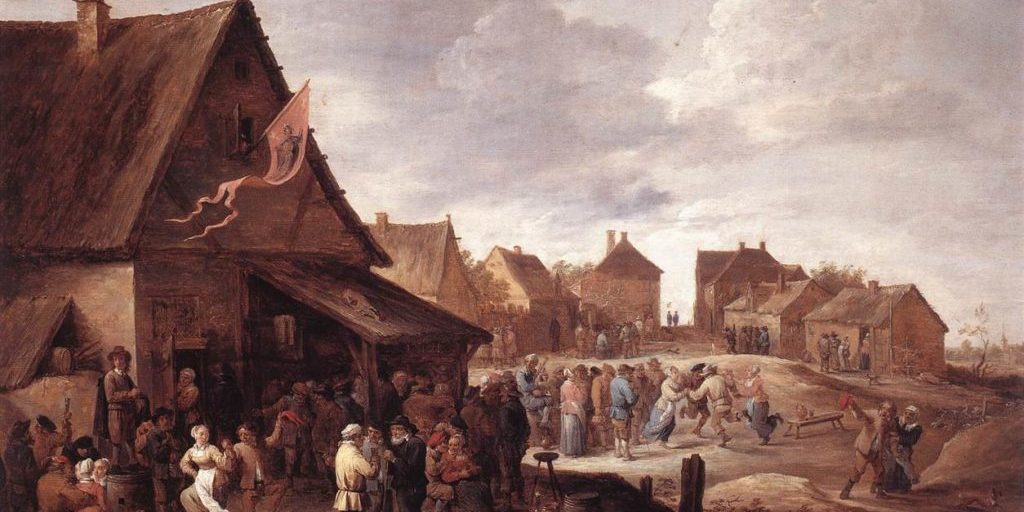
How to Read Habakkuk Theologically
In a previous article on reading Micah theologically I outlined what I see as the foundational presuppositions for reading and interpreting Scripture—particularly the Old Testament—theologically. There I stated that God is the author of Scripture, Christ is the telos of Scripture, and the church is the owner of Scripture. These three principles guide my understanding of Habakkuk’s voice to the Christian church today as he reminds us that God is just, God is sovereign, and humans are to wait on him in faith-filled trust and expectation.
God is Just
Habakkuk opens rather abruptly, with the prophet turning the tables on the God of the universe, it seems. “How long?” he asks. How long will God ignore Habakkuk and instead allow violence and injustice to run rampant among . . . his own people?! The prophet is calling into question one of Yahweh’s fundamental characteristics—his justice. To Habakkuk—and to so many of us today—it appears that God is not just because all around us we see violence, destruction, and the perversion of justice. And again, Habakkuk is complaining about this among God’s own people.
Imagine yourself in that position—you are there in your local church and evil surrounds you on every side. You are taking communion with people on Sunday who on Monday exploit the poor and on Tuesday commit murder and sexual assault. They have no fear of God, they regularly pervert justice, and they go through all the normal Christian rites and rituals, even reading their Bible regularly and tithing dutifully. And only you seem to notice, or at least to care, that the Christians around you are wicked to the core.
Now imagine this. After you pour out your complaint to the Father like Habakkuk did in 1:2–4, the Lord graciously speaks to you. He tells you not to worry at all, because he is going to set things right. In fact, this very moment he is raising up a group of people who have pledged allegiance to the Islamic State to bring his judgment to your church. It sounds absurd, right? And yet that is exactly what God says to Habakkuk. God will bring justice to his own people my means of the Babylonian Empire, “that bitter and hasty nation, who march through the breadth of the earth, to seize dwellings not their own. They are dreaded and fearsome; their justice and dignity go forth from themselves. . . . Then they sweep by like the wind and go on, guilty men, whose own might is their god!” (Hab 1:6–7, 11)
“Wait, what?!” This is not at all what the prophet had in mind. He responds by again questioning the Lord’s justice: “why do you look idly at traitors and remain silent when the wicked swallows up the man more righteous than he?” (Hab. 1:13). Just as I would be shocked were the Lord to use the Islamic State to judge my church, Habakkuk is shocked that God would use Babylon to raze Judah. The rest of the book goes on to promise God’s later judgment on the Babylonians (ch. 2), and it ends with Habakkuk’s prayer recounting God’s glory and majesty, which lead him to trust in Yahweh fully.
What’s the point of this promise of judgment from Babylon and of Babylon? I think its twofold. First, God is just. He does not allow the wicked to go unpunished. He will set his own people right, and then he will bring about justice on the very people he ordained to judge Judah. Even though Habakkuk initially cried foul at God’s choice of instrument to judge Judah, he ultimately confesses his trust in God as a just, merciful, and powerful God.
Perhaps we hear faint echoes of the cross in this exchange, another instance in which God entirely turned human expectations and notions of justice on their head.
“How will we be made right with God?”
“I got this,” the Father responds. “I’m going to send my son, who will live a perfect life and die a criminal’s death on the cross. I’ll accept his sacrifice on your behalf, and you’ll become my adopted children.”
Doesn’t seem right, does it? And yet that is how God has worked out his just judgment for those who are in Christ. Just as he turned Habakkuk’s complaint on its head, he upends our understanding of justice such that “by the one man’s obedience many will be made righteous” (Rom 5:19). Just as he turned Habakkuk’s complaint on its head, he upends our understanding of justice such that “by the one man’s obedience many will be made righteous.” Click To Tweet
God is Sovereign
This is the second point I think God is making in Habakkuk. He is sovereign over the whole world, not just the small strip of land known then as Judah. He is God of the Babylonians as well, whether they realize it or not. As such, he is well within his rights to 1) use them to judge the people of Judah, and 2) judge them for their own sins. This is one of the mysteries of who God is. Like Habakkuk, I think we can find ourselves asking, “Is it right to use a more wicked people to judge someone less wicked?” God’s response, of course, is that he can do what he wants, because he is God. It’s essentially his same response to Job toward the end of the book. There is so much that Job didn’t understand, and that we don’t understand, so we are not in a place to question the whens and whys and hows of God. And yet in Habakkuk’s case, the Lord deigned to answer the prophet by promising that he would also judge the Babylonians. In each of these cases—Job and Habakkuk—we see God’s sovereignty, but we also see another facet of God’s character in terms of how we are to relate to him: in faith-filled trust and expectation.
Humans Wait on God in Faith-Filled Expectation
Since God is just, and since God is sovereign, he expects us to wait on him in faith-filled trust and expectation. The Lord states in 2:4 that “the righteous shall live by his faith.” Paul picks this up in Romans 1:17, yet he leaves out the words “his faith.” The point remains the same: in the midst of this life here on earth, the righteous live by faith—or by his faith—that is, the faith-filled trust and expectation that God will be true to his character. That, friends, is all we have. And it is all God has deemed we need. He has revealed himself to us in Scripture and in Christ, and we are to cling to that revealed Word and that risen Savior with all that we have. Though our eyes and experiences may tell us something different, with Habakkuk we say,
Though the fig tree should not blossom,
nor fruit be on the vines,
the produce of the olive fail
and the fields yield no food,
the flock be cut off from the fold
and there be no herd in the stalls,
yet I will rejoice in the LORD;
I will take joy in the God of my salvation.
GOD, the Lord, is my strength;
he makes my feet like the deer’s;
he makes me tread on my high places. (Hab 3: 17–19)

